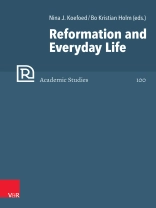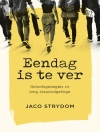The European reformations meant major changes in theology, religion, and everyday life. Some changes were immediate and visible in a number of countries: monasteries were dissolved, new liturgies were introduced, and married pastors were ordained, others were more hidden. Theologically, as well as practically the position of the church in the society changed dramatically, but differently according to confession and political differences.
This volume addresses the question of how the theological, liturgical, and organizational changes changes brought by the reformation within different confessional cultures throughout Europe influenced the everyday life of ordinary people within the church and within society.
The different contributions in the book ask how lived religion, space, and everyday life were formed in the aftermath of the reformation, and how we can trace changes in material culture, in emotions, in social structures, in culture, which may be linked to the reformation and the development of confessional cultures.
O autorze
Prof. Dr. Siegrid Westphal ist Inhaberin des Lehrstuhls für Geschichte der Frühen Neuzeit an der Universität Osnabrück sowie Direktorin des Forschungszentrums Institut für Kulturgeschichte der Frühen Neuzeit.












